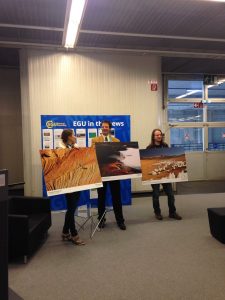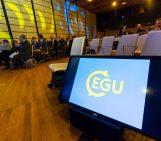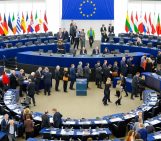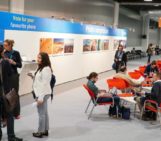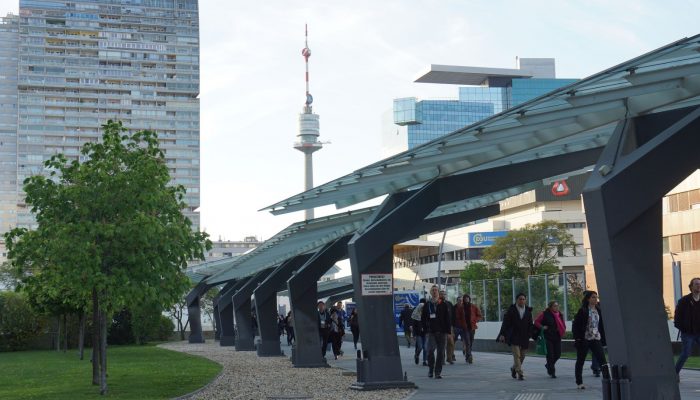
The conference is coming to a close and there’s still an abundance of great sessions to attend! Here’s our guide to getting the most out of the conference on its final day. Boost this information with features from EGU Today, the daily newsletter of the General Assembly – pick up a paper copy at the ACV entrance or download it here.
Union Sessions
The final day of the conference kicks off with the last Union session, Scientific research in a changing European Union (EU): where we stand and what we aim for (US5). Panelists will explore some of the challenges and potential threats to academics in the EU and how these issues can be addressed and overcome. The session will also outline some of the advantages of the EU, funding programmes that are currently provided and how the European Union can continue to develop and nurture its researchers.
Medal Lectures
Be sure to also attend the last two medal lectures of the assembly:
- Non-equilibrium chemistry in outer Solar System atmospheres (ML11/PS) David Bates Medal Lecture by Bruno Bézard, 8:30-9:30 / Room M2
- The interaction of different scales of convective overturn in planetary mantles (ML8/GD) Augustus Love Medal Lecture by Edgar M. Parmentier, 11:00-12:00 / Room D3
Short Courses
The last leg of short courses offers insight into new technologies, tips for publishing your work, and advice on how to develop your career. Here are a few of the short courses you can check out today:
- How to write (and publish) a scientific paper in Hydrology (SC3.6/HS12.2): 08:30–10:00 / Room -2.16
- Scientific publishing, science integrity and work ethics: short-course on the scientific method and our modern work environment (SC3.9): 08:30–12:00 / Room -2.91
- Meet the experts in Geomorphology (SC3.18/GM12.2): 10:30–12:00 / Room -2.16
Scientific Sessions
The three final interdisciplinary events also take place today. Early in the morning a series of talks will discuss biogeomorphology: conceptualising and quantifying processes, rates and feedbacks. Another session will explore medical geology, an emerging field of science that is dealing with the impact of natural geological factors, process and material on humans and animals health. Our final interdisciplinary event will explore sea-level changes from minutes to millennia, highlighting proxy records for constraining our understanding of present and future sea-level change
It’s your last chance to make the most of the networking opportunities at the General Assembly, so get on down to the poster halls and strike up a conversation. If you’re in the queue for coffee, find out what the person ahead is investigating – you never know when you might start building the next exciting collaboration! Here are some of today’s scientific highlights:
- Cultural heritage resilience against climate events and other risks: modelling, remote and in-situ sensing, material characterization and ICT tools
(GI3.3/EMRP4.10/NH9.23/PS4.10) Orals: 08:30–10:00 / Room L3; Posters: 17:30–19:00 / Hall X1
- Remote sensing of the cryosphere (CR2.1) Orals: 13:30–17:00 / Room N1; Posters: 13:30–15:00 / Hall X4
- Forests under pressure: current knowledge and future science directions (BG2.23) Orals: 13:30–17:00 / Room L2; Posters: 17:30–19:00 / Hall A
- Paleoseismicity, active faulting, surface deformation, and the implications on seismic hazard assessment (TS5.1/NH4.8/SM3.02) Orals: 08:30–12:00 / 13:30–15:00 / Room D2; Posters: 17:30–19:00 / Hall X2
Today we also announce the results of the EGU Photo Contest! Head over to the EGU Booth at 12:15 to find out who the winners are.
What have you thought of the Assembly this week? Let us know at www.egu2018.eu/feedback and help make EGU 2019 even better.
We hope you’ve had a wonderful week and look forward to seeing you in 2019! Join us on this adventure in Vienna next year, 7–12 April 2019.

